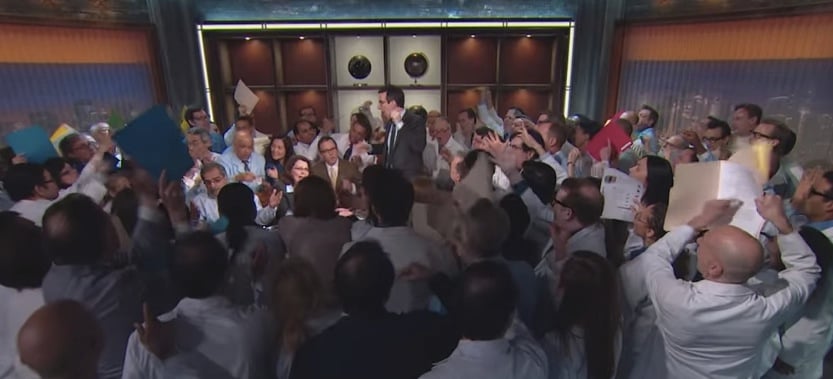In science, there must always be an error analysis to accompany any report. You may remember it as, “The worst part of doing chemistry lab reports in high school.” That’s because, no matter how conclusive scientific evidence is, there will always be some outlying data to account for. So, applying that to a statistical analysis of who agrees that certain scientific evidence is accurate, you’ll always have a small number of outliers who don’t agree. That’s science, and the BBC wants to make sure it’s represented accurately.
Back in 2011, the BBC Trust (the BBC’s governing body) put out a report on how their reporters couldn’t properly depict the actual balance in scientific discourse because, to remain “impartial,” they were expected to always entertain the other side of the debate. The report found that it was due to a fundamental misunderstanding of how such discussions should function. The report stated:
A frequent comment received during this review is that elements of the BBC—particularly in the area of news and current affairs—does not fully understand the nature of scientific discourse and, as a result, is often guilty of “false impartiality”; of presenting the views of tiny and unqualified minorities as if they have the same weight as the scientific consensus. That approach has for some (but not all) topics become widespread. Conflictual reporting of this kind has the ability to distort public perception. It arises in part because news and current affairs presenters, who have to think on their feet in a live interview, may have little insight into the topic being discussed and hence find it more difficult to establish balance than when dealing with politics, the media or finance.
It’s understandable, because proper scientific reporting isn’t easy, and journalists are under ever-increasing pressure to adhere to a definition of impartiality that is unrealistic and perhaps sometimes actively harmful. It’s a problem that extends far beyond the BBC and TV reporting. So ever since the original report, the BBC has been sending its reporters to training seminars to teach them how to give “due weight” to scientific evidence and make sure the balance of their reporting reflects the balance between accepted scientific conclusions and small, often unqualified groups of dissenters.
Unfortunately, this training was more difficult than they had imagined, but they kept at it, and just yesterday the BBC Trust issued a new report stating that 200 of its executives had completed the workshops. Hopefully, this will allow them to better place “due weight” on differing opinions in discussions of science and lead to a more accurate picture of the world for their audience.
As John Oliver brilliantly demonstrated on Last Week Tonight a few weeks back, issues with vocal dissenters like climate change, vaccines, GMOs, and others are often falsely treated as equal in TV reporting simply because they’re given time to talk. When climate change is discussed on television and two people are brought on to debate it, that’s creating a false equivalence in the mind of the audience between the two viewpoints. The number of people debating for and against don’t accurately represent the number of scientists, or even every day people, who actually hold a particular belief.
That can make it seem like both sides of the debate are equally matched when, in the case of climate change, an overwhelming 97% of the scientific community agrees that it’s being caused by humans. It would be more accurate for the audience if 97% of the conversation on climate change operated under the assumption that it was a fact, while every once in a while a footnote should be added to account for that 3% that notes that there is some skepticism.
Basically, the BBC is trying to implement what our own Managing Editor, Glen Tickle, discussed in his post about why our science posts often ignore certain viewpoints. Science-minded people may not have been surprised by the stance, but we’ve gotten a lot of comments in the past complaining that our reporting was imbalanced when, in fact, entertaining the other side of the argument would’ve given our audience a less accurate view.
Now that the BBC is making strides in this department, it’ll be interesting to see what effect it has on their reporting and whether or not such a thing makes its way to other news networks.
(via io9, image via Last Week Tonight)
- John Oliver’s example was pretty fun to watch
- We won’t entertain bad science, either
- NASA says some effects of climate change are now unstoppable
Are you following The Mary Sue on Twitter, Facebook, Tumblr, Pinterest, & Google +?









Published: Jul 4, 2014 12:30 pm